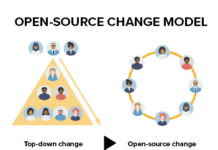Amid the current labour shortage, it can be easy to fall prey to panic hiring. But there are other ways to keep your business churning without cutting corners.
Just last year, in a desperate rush to bring new talent into its ranks, a company hired a new employee for a mortgage lending role.
The candidate was very charismatic and presented as having all the skills and knowledge required for the role. Believing him to be the best person for the job, the employer went through with the hire, but bypassed a critical step: obtaining his police check.
A couple of months in, the employer learned that their new hire had been convicted of fraud and misconduct in his previous workplace.
The company then put a plan in place for police to remove the employee from the workplace.
Jessica Bilston-Gourley MAHRI, Founder of Positive HR, draws on this example to explain the dangers of panic hiring.
“It’s the cost of not doing your due diligence, and of not following every process,” she says.
“It often happens out of desperation to try and get someone on board as quickly as possible, and also comes from a place of fear that they might lose this person in the marketplace. That was a huge fear [in the case above] because the candidate told the company he was interviewing at a number of other companies.”
This situation might sound like an anomaly, but these types of hiring errors are happening more often than you might think, says Bilston-Gourley.
While most hiring mistakes aren’t as extreme as recruiting an employee who’s been convicted of a serious crime, they can still cause considerable damage to your workplace.
What’s giving rise to panic hiring?
It will come as no surprise that panic hiring has been linked to the current labour shortage.
“There is huge resourcing pressure at the moment so employees might’ve moved on and employers are struggling to find their replacements,” says Bilston-Gourley.
“If you’ve been looking for a new hire for some time, and then you finally find someone who ticks the boxes, you just want to hit go and make it happen.
“It’s one of the most harmful hiring situations that managers can find themselves in. I am seeing almost every one of my clients panic hire. I can’t tell you how many times this week I’ve had to say to clients, ‘The wrong hire is worse than no hire.’”
Bilston-Gourley says that having a manager or owner as the sole decision-maker can also exacerbate the risk of panic hiring.
“Managers might not ask for a second opinion, and this is where we see a lot of unconscious bias come into play. They have their emotions invested in this individual and they start skipping steps in the process because they really gel with the person,” she says.
She says this might have been what transpired in the case of the mortgage lender, who was particularly charismatic and energetic.
See HRM’s article on the ‘Dr Fox Effect’ – the concept of someone’s charisma masks their lack of credibility.
“An emotional response can lead to panic hiring or cutting corners because they want that person in their team so badly.”
Panic hiring isn’t the only solution
If organisations need to quickly bring fresh talent into their ranks, how can they resist the temptation to hire quickly?
Bilston-Gourley says having a streamlined recruitment process in place can help.
“It’s about being efficient and having good processes that allow you to recruit efficiently and effectively.
“Every company needs to have a standard recruitment process, and while it should be adaptable based on different roles and what’s happening in the organisation, there are some non-negotiables. Doing a background check is absolutely paramount for every single business and every single role.”
Consider sustainable ways of filling the gaps while looking to get the right talent on board, such as temporarily outsourcing work to contractors or empowering your people to upskill in the areas you need, but make sure you don’t add too much to people’s plates and burn them out in the process.
Being short-staffed is a challenge that Bilston-Gourley is currently facing with her own team.
She’s been seeking a new audit manager for four months, to little avail. So while she continues searching the market, she’s turning her attention inwards.
“I’m asking my team who wants to put their hand up and help out with some different work. We’re going to upskill them so it’s beneficial for them. We don’t want to panic hire, so we’re having this conversation openly with the whole company.”
This could be an opportunity to develop informal leaders in your team, says Bilston-Gourley.
“You can give your current employees more responsibility or accountability. It’s not doing it solely for your business, it’s also to retain your staff and fill that gap until you can hire the right person.”
Creating ongoing learning opportunities for these employees, rather than just temporarily giving them new work to plug gaps and then having them return to their former roles, can also further their professional development.
As much as employees are encouraged to ask their leaders for help if they need it, this should flow both ways.
“Few organisations are transparent when the business has hit hard times,” says Bilston-Gourley, but she thinks many will be pleasantly surprised by the number of people who are willing to help – provided they’re given the right support.
“It’s a short-term win for them because they’re learning a new skill, and a gain for the company because we’re not going to hire the wrong person in a mad rush.”
There are also ways to speed up the recruitment process without cutting corners. Employers could send a questionnaire to a referee, for example.
“I’d recommend calling them first and establishing that relationship before sending them questions, but a written reference check can be a great way of reducing the time involved,” she says. “It’s a really effective and streamlined way of conducting referee checks.”
It’s also important to carve out time for recruitment in advance.
“Before you even think about hiring, block out time in your calendar. Have an approximate guide for how long it takes to source a candidate.”
This can help to ensure you’re allocating the time towards recruitment that’s needed, and not having to rush a critical process with no time to spare.
If you skip over critical steps in recruitment, there’s a high chance of making a poor hire. AHRI’s short course on Recruitment and workplace relations offers helpful tips and can be tailored to your needs. Enquire for more info.
The post Need to hire quickly? Be wary of ‘panic hiring’ appeared first on HRM online.
Now retrieving an image set.
Key Person of Influence: The Five-Step Method to Become One of the Most Highly Valued and Highly Paid People in Your Industry
(as of April 19, 2025 02:49 GMT +00:00 - More infoProduct prices and availability are accurate as of the date/time indicated and are subject to change. Any price and availability information displayed on [relevant Amazon Site(s), as applicable] at the time of purchase will apply to the purchase of this product.)Now retrieving an image set.
The Power of Mattering: How Leaders Can Create a Culture of Significance
(as of April 22, 2025 03:00 GMT +00:00 - More infoProduct prices and availability are accurate as of the date/time indicated and are subject to change. Any price and availability information displayed on [relevant Amazon Site(s), as applicable] at the time of purchase will apply to the purchase of this product.)Now retrieving an image set.
Performance First: A practical approach to training that works
(as of April 22, 2025 03:00 GMT +00:00 - More infoProduct prices and availability are accurate as of the date/time indicated and are subject to change. Any price and availability information displayed on [relevant Amazon Site(s), as applicable] at the time of purchase will apply to the purchase of this product.)Now retrieving an image set.
Running the Gauntlet: Proven Strategies for High-Growth Leaders
(as of April 22, 2025 03:00 GMT +00:00 - More infoProduct prices and availability are accurate as of the date/time indicated and are subject to change. Any price and availability information displayed on [relevant Amazon Site(s), as applicable] at the time of purchase will apply to the purchase of this product.)Now retrieving an image set.
Who Moved My Cheese?: An A-Mazing Way to Deal with Change in Your Work and in Your Life
(as of April 19, 2025 02:49 GMT +00:00 - More infoProduct prices and availability are accurate as of the date/time indicated and are subject to change. Any price and availability information displayed on [relevant Amazon Site(s), as applicable] at the time of purchase will apply to the purchase of this product.)Now retrieving an image set.
Working in Harmony: 5 Vital People Skills to Raise Your Team’s Performance
(as of April 19, 2025 02:49 GMT +00:00 - More infoProduct prices and availability are accurate as of the date/time indicated and are subject to change. Any price and availability information displayed on [relevant Amazon Site(s), as applicable] at the time of purchase will apply to the purchase of this product.)Now retrieving an image set.
Reshuffle: Who wins when AI restacks the knowledge economy
(as of April 22, 2025 03:00 GMT +00:00 - More infoProduct prices and availability are accurate as of the date/time indicated and are subject to change. Any price and availability information displayed on [relevant Amazon Site(s), as applicable] at the time of purchase will apply to the purchase of this product.)Now retrieving an image set.
The Five Dysfunctions of a Team: A Leadership Fable
(as of April 19, 2025 02:49 GMT +00:00 - More infoProduct prices and availability are accurate as of the date/time indicated and are subject to change. Any price and availability information displayed on [relevant Amazon Site(s), as applicable] at the time of purchase will apply to the purchase of this product.)Now retrieving an image set.
There's Got to Be a Better Way: How to Deliver Results and Get Rid of the Stuff That Gets in the Way of Real Work
(as of April 19, 2025 02:49 GMT +00:00 - More infoProduct prices and availability are accurate as of the date/time indicated and are subject to change. Any price and availability information displayed on [relevant Amazon Site(s), as applicable] at the time of purchase will apply to the purchase of this product.)Now retrieving an image set.



























